Life
Sign up for our newsletter
We summarize the week's scientific breakthroughs every Thursday.
-
 Science & Society
Science & SocietyThe CBD boom is way ahead of the science
As CBD-laced foods and health products gain popularity, researchers are just beginning to fill the gaping holes in knowledge about this cannabis molecule’s benefits.
-
 Health & Medicine
Health & MedicineEpileptic seizures may scramble memories during sleep
Overnight seizures seemed to muddle memories in people with epilepsy.
-
 Health & Medicine
Health & MedicineA single sweaty workout may boost some people’s memory
Memory improvements after a short bout of exercise mirrored those seen after months of training.
-
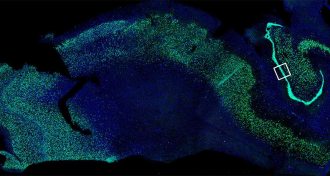 Health & Medicine
Health & MedicineSigns of new nerve cells spotted in adult brains
A study finds new evidence that adult brains grow new nerve cells, even the brain of an octogenarian.
-
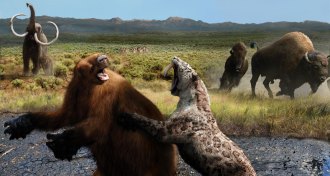 Paleontology
PaleontologySaber-toothed cats were fierce and family-oriented
New details shift the debate on whether Smilodon lived and hunted in packs, and answer questions about other behaviors and abilities.
-
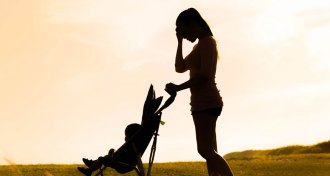 Neuroscience
NeuroscienceWomen have a new weapon against postpartum depression, but it’s costly
The newly approved drug brexanolone simulates a natural hormone to alleviate symptoms of postpartum depression.
By Jeremy Rehm -
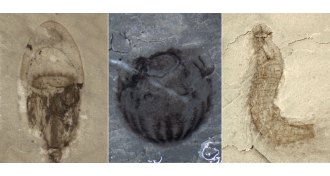 Paleontology
PaleontologyNewfound fossils in China highlight a dizzying diversity of Cambrian life
A new treasure trove of Cambrian fossils in China dating to 518 million years ago could rival Canada’s Burgess Shale.
-
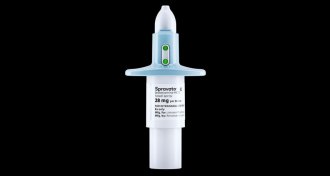 Health & Medicine
Health & MedicineA new ketamine-based antidepressant raises hope — and questions
Little is known about the long-term effects on people of a newly approved antidepressant based on the anesthetic ketamine.
-
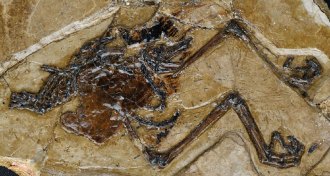 Paleontology
PaleontologyIn a first, a fossilized egg is found preserved inside an ancient bird
Scientists have found the first known fossil of a bird that died with an unlaid egg inside its body. The egg has been crushed by pressure over time.
-
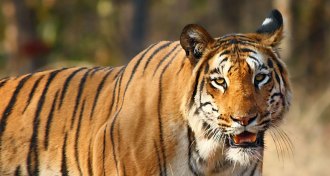 Animals
AnimalsHow a tiger transforms into a man-eater
‘No Beast So Fierce’ examines the historical and environmental factors that turned a tiger in Nepal and India into a human-killer.
-
 Neuroscience
NeurosciencePeople can sense Earth’s magnetic field, brain waves suggest
An analysis of brain waves offers new evidence that people subconsciously process information about the planet’s magnetism.
-
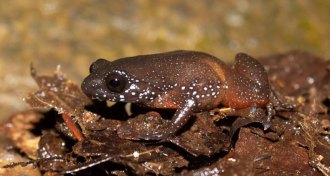 Animals
AnimalsMeet India’s starry dwarf frog — a species with no close relatives
The newly identified starry dwarf frog represents a new species, genus and potentially even a new family.
By Jeremy Rehm